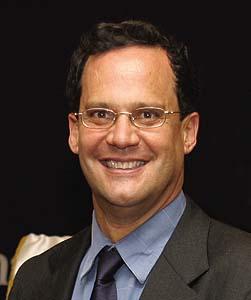 The ISO is an intergovernmental organization whose vision is to be a centre of excellence as the ‘first-best’ provider of comprehensive information to the global sugar, sweeteners and sugar-crop based renewable energy community.
The ISO is an intergovernmental organization whose vision is to be a centre of excellence as the ‘first-best’ provider of comprehensive information to the global sugar, sweeteners and sugar-crop based renewable energy community.
Its mission flows directly from its vision. The mission is to provide, in a balanced and objective way, first-class economic research, market analysis and statistics centred on sugar, sweeteners and renewable energy from sugar crops (fuel ethanol and cogeneration).
The organization’s goals is to achieve its mission by fulfilling a number of goals including providing member states with high quality market analysis, economic research and statistics that satisfy their needs and also to provide avenues for debates and deliberations of all matters impacting global markets for sugar, sweeteners, fuel ethanol and bagasse based cogeneration.
The direct benefit of these goals arises in helping member governments, the private sector and other interested parties to understand the economic and policy related key drivers of the world sugar, sweeteners, fuel ethanol and bagasse-based cogeneration markets, but just as importantly to help them prepare their national sugar industries for the climate of continuing change that shapes the world sugar, sweeteners and fuel ethanol economy.
The ISO has already made a significant contribution to an improved understanding of emerging issues in the sugar, sweeteners and ethanol markets – through its MECAS work program, ISO Seminars and workshops and will continue to do so.
Ghana and the ISO
Ghana has been a long standing member of the International Sugar Agreement 1987 when Ghana’s Komenda Sugar Factory was functioning until its closure in the 1980’s. Through the relentless efforts of Professor Thomas Appiah Kubi, an International Business Consultant with UK based Marketing Communications Afrika, Ghana re-joined the International Sugar Agreement 1992 in August 2008 and was actively involved in the process.
Currently, Ghana has lost its membership rights under article 26(3) of the International Sugar Agreement 1992 due to outstanding debt of £6,486 for 2012 & 2013.
With the restoration of the Komenda Sugar Factory and the plans by the government through the Ministry of Trade and Industry for the establishment of another sugar factory at Depale in the Northern Region, where research had shown that the soil in the area is good for sugar cane production, Ghana is to and must seize this opportunity in renewing its commitment to be a full fledge member of the International Sugar Organization.
Ghana as a full fledge member will directly benefit from opportunities which cannot be quantified directly but will have a positive impact on the formulation of sugar policies and the performance of the sugar economies in member countries.
For instance, the ISO provides members with market information and market analysis coming from recognized leading analysts with an independent view point, and with the objective of increasing market transparency. Again, the ISO is the only worldwide forum for discussions on an inter-governmental level: sugar policy, sugar trade policy and related
matters giving access to members to the know-how and experience of other countries in restructuring their sugar economies.
The ISO provides a meeting point of decision-makers from governments and the private sector and it is also the designated commodity body for projects sponsored through the Common Fund for Commodities (CFC) of which priority is given to projects from member countries.
Following from the ISO’s mission and goals, Ghana as a full fledge member of the organization will benefit from improved transparency in world sugar, sweeteners and ethanol trade. Also, the governments will fully be informed about key drivers and emerging issues impacting the world markets for sugar, sweeteners, ethanol and bagasse based cogeneration.
For us at Diplomatic Call, the sugar industry in Ghana has the capabilities of growing and providing additional revenue for the government and the people of Ghana if only the necessary attention would be paid to the industry by the government. One of the very viable means through which the government can prioritize the sugar industry is by renewing its commitment and becoming a full fledge member of the International Sugar Organization.
This piece is one of a series of publications, plea and attempts to get the Ministry of Trade and Industry and the government to begin the process of prioritizing the sugar industry by renewing its commitment to the international Sugar Organization.
By S. Owusu – Mante.























